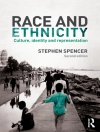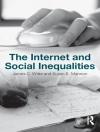‘John Scott has provided us with an encyclopaedic tour through the foundations and development of social theory which cautions against the contemporary fragmentation of academic work and demonstrates the continued value of sociology′s heritage. The book will become a key resource for students and scholars alike.’ – Barry Smart, Portsmouth University
This is a comprehensive, critical review of social theory that places leading contributions in their larger context. Writt...
İçerik tablosu
Social Theory: Should We Forget the Founders?
Genealogy of the Social
Renaissance and Enlightenment
Britain: Individualism and Romanticism
France: Revolution and S...
Yazar hakkında
John Scott is an Honorary Professor at the Universities of Essex, Exeter, and Copenhagen. He was formerly a professor of sociology at the Universities of Essex and Le...












